Caring
A little more about the Caring Relationship…
When the Guildford Mental Health Liaison Group made a special visit to The Priory Hospital, we were obviously impressed by the therapeutic regime and high staffing ratio, as well as the excellent induction and training programmes.
But what struck us most was the relaxed environment – the beauty of the garden, the opportunities for tennis, the single rooms with en suite facilities. It is so obvious that the healing of emotional and psychiatric wounds can happen so much better where there is space and privacy and somewhere apart from the hidden pressure of the daily grind which cause the all-encompassing stress. At The Priory there was a gentle sense of retreat, very different from the rather bleak old institutions but reminiscent of their space.
However, there is a fundamental flaw with The Priory – the cost! So we were asking ourselves how we can find this same space, on a low budget in the community; a safe haven without walls.
Maybe we need to start with what we have. Friendship and mutual support provide space. Holidays, outings and walks give time out and away from worry and anxiety. Special places where we know we will feel at home…
But there could be more.
Do we think of using the resources of religious houses where there are grounds and peace and “spirituality”?
Do we do enough to create “time out” by organising specific programmes which enrich the soul-visits to art galleries, historical gardens, places for meditation and reflection-therapies that rely on nothing more than travelling to the very ordinary spot that is genuinely in harmony with our best selves.
I remember watching the geese and swans in the Peter Scott Wildfowl sanctuary in Gloucestershire some years ago. They looked beautiful because, in such a place, they were allowed to flourish in an environment free of pollution, toxic pesticides, hunters, etc. Maybe there is a lesson here; the world is so hard to our emotions that it needs sanctuary for us too to be ourselves.
Jeremy Boutwood
We All Really Appreciate:
- being treated with respect and courtesy, especially when we are feeling distressed or slightly out of control.
- being helped to understand our predicament.
- being helped to express our concerns fully.
- being appreciated.
- a responsible attitude to life in ourselves and in others.
- being seen for the responsible people that we are.
- sensitivity.
- being given feedback that helps us come to terms with our own distress.
- being reminded that there is no need for blame or self-blame in this world.
- being taken seriously, especially when our ideas are uncommon or bizarre and especially when we are feeling angry, sad or frightened.
- being consulted on matters which affect the future, especially when we don’t understand the need for what is being proposed.
- being encouraged to choose our own labels for our states of being.
- being encouraged to take charge of our own lives.
- being trusted.
from Spiritual Pain – Jean Vanier
To Kiss Frogs?!
The task which faces all of us in the caring profession has a lot of similarity with the old fable of the handsome prince who was turned into a frog. How many people do you know who feel like that prince – trapped in a body from which they can’t escape and feeling that some circumstance beyond their control has put them there?
The frog feeling comes when you want to be bright – but you feel dull. You want to share – but feel selfish. You want to be thankful – but you feel indifferent. Who hasn’t felt that way at some point in their life?
You find yourself all alone, floating in a large pond on a lily pad with life passing you by. You don’t like yourself much. You feel ugly and unloved. You have no sense of purpose or direction to your life. Your close relationships are at rock bottom – life is not much fun. You feel frightened, disgusted with yourself, pooped and poopy – just too sluggish to budge.
But you and I know what happened next in the fable. A beautiful young maiden came along and kissed the frog. Now I ask you – when have you ever seen a beautiful young woman kiss a slimy, green old frog? Most people won’t touch one much less kiss it. But the young maiden knew something you and I often fail to recognise. Inside that ugly old frog was trapped a handsome young prince.
The same is true of every human being who feels like a frog. There is human potential just waiting to be released. And it may be as simple as another human being coming along and recognising the spiritual pain a person is in and experiencing – a pain which sentences many people to years of feeling low self-esteem, no sense of purpose to life, relationships to self and others in a terrible state – and recognising the full potential of the person feeling this way – realising that every person is created in the image and love of the Creator and is just waiting to be kissed so they can be released from the bondage of feeling like a frog.
So what is the task of caring for people?… to kiss frogs of course!
In his book, “Spiritual Pain“, Doug Hiza talks about the importance of ‘agendas’ when we are offering pastoral care to another person. He says, “We must always focus on the agenda of the (other person) – not our own hidden agenda.”
It reminded me of a visit made to me in hospital many years ago by a well meaning lady from one of the local Christian churches. In the long bare dormitory ward I had no choice about her visit to me and every word could be overheard by the 20 or so other patients. I must have appeared very ungrateful, and offended by my lack of response, I was told that I was selfish and that it was no wonder I was ill!
I was proclaimed sinful and in need of forgiveness. Although this may well have been true, I was feeling very vulnerable and already overburdened with feelings of guilt. Her words had a profoundly distressing effect on me and still re-visit me (25 years later) when I feel low.
Maybe an extreme example, but I felt that this lady had come with her own agenda. We all have our own agenda but I need to acknowledge my own, so that I can put it to one side and focus on that of the other. It is then that I can really listen and hear wheat is being said and form a supportive, trusting and non-judgemental relationship which can form a bridge and a channel for healing.
Pastoral care for me means meeting with another person as human beings with respect for each other, but also knowing that when we are in relationship with God we have an extra spiritual dimension and resource within that relationship. We can then try to truly “be there” for each other.
The contributor of this piece wishes to remain anonymous

